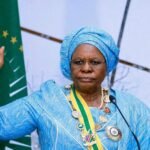Africa is often characterised as a land of contrasts, a continent abundant in natural resources yet home to some of the world’s most impoverished communities. This paradox presents both significant challenges and immense opportunities. The question is not merely about acknowledging Africa’s wealth but about strategically harnessing it to foster sustainable growth, resilience, and lasting prosperity.
The continent’s vast reserves of minerals, oil, and fertile agricultural land represent a foundation for economic transformation. When managed responsibly, these resources have the potential to drive progress and uplift entire communities. Every ounce of gold extracted, every barrel of oil refined, and every acre of arable land cultivated could serve as a catalyst for widespread development, provided that governance and accountability remain at the forefront.
Achieving equitable and sustainable growth requires collective action. Strong governance and transparency must be prioritised to ensure that the benefits of Africa’s wealth reach all its people, not just a privileged few. By holding leadership accountable and advocating for fair distribution, citizens can help shape policies that prioritise national progress over individual gain. This shift is essential to fostering inclusive economic empowerment.
However, Africa’s most valuable resource is not its minerals or oil but its people. Investing in education and healthcare is fundamental to unlocking the continent’s true potential. A well-educated, healthy population is the backbone of any thriving economy, capable of driving innovation, leadership, and positive change. By equipping individuals with knowledge and skills, Africa can cultivate a generation of problem-solvers, entrepreneurs, and visionaries who will propel the continent forward.
Sustainable resource management is equally critical. The pursuit of economic growth must not come at the expense of environmental degradation. By adopting sustainable practices, Africa can protect its ecosystems while ensuring that future generations inherit a thriving and habitable continent. Emphasising green initiatives and responsible resource utilisation can position Africa as a global leader in sustainable development, demonstrating that economic advancement and environmental stewardship can coexist.
Technology presents another powerful avenue for progress. Innovative solutions can bridge gaps in infrastructure, education, and healthcare, enhancing connectivity and productivity. Digital advancements can revolutionise access to markets, streamline governance, and create new economic opportunities, allowing Africa to leapfrog traditional developmental constraints and establish itself as a competitive force in the global economy.
Africa’s potential extends beyond its borders. International partnerships with businesses, governments, and development organisations can provide vital investment and expertise. Collaboration fosters shared prosperity, accelerating growth that benefits not only Africa but the global community. By engaging in mutually beneficial alliances, the continent can attract the resources necessary to drive large-scale transformation.
Despite the challenges, Africa’s resilience remains its greatest strength. The narrative of poverty need not define the continent’s future. With unity, strategic investment in human capital, sustainable resource management, and technological innovation, Africa can transition from a story of untapped potential to one of triumph.
Now is the time to harness Africa’s wealth not just for economic gain but to build a continent rich in opportunity, hope, and progress. The journey ahead requires determination, collaboration, and visionary leadership, but the possibilities are limitless. Together, Africa can redefine its future, ensuring that its riches translate into meaningful, lasting prosperity for all.










